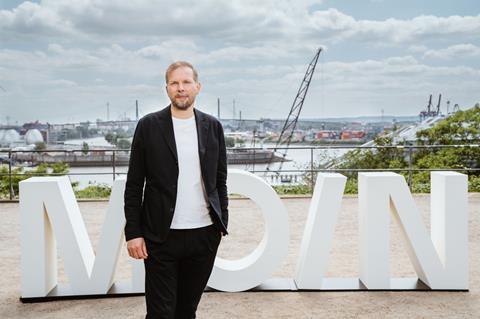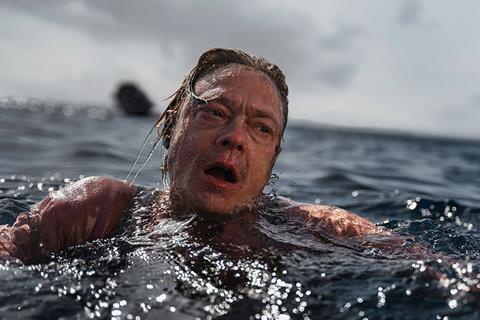
The many and various international films supported by Hamburg and Schleswig-Holstein’s regional film fund MOIN (Moving Images North), are being showcased at this year’s Filmfest Hamburg.
With a record 19 productions supported by the fund in the progrmame, the line-up includes festival favourites from Cannes (Palme d’Or winner Triangle of Sadness and Holy Spider), Locarno (Human Flowers of Flesh and You Will Not Have My Hate) and Venice (Victim and War Sailor) as the world premiere of Fatih Akin’s rapper biopic Rheingold and debut features by Alex Schaad (Skin Deep) and Pascal Schröder (The Social Experiment).
“It’s a confirmation of a job well done,” says Helge Albers, CEO of MOIN, of the breadth of films the fund supports. “The fact that so many of these films are invited to screen at international festivals also shows that [our] funding committees recognise excellence [when making their funding decisions].”
In reference to the impact of the pandemic on international producers Albers says “demands have increasingly been made on us to address structural issues. Challenges such as the skills shortage mean that our work as a film funder now really goes far beyond what we had previously focused on.”
MOIN joined forces with Hamburg Media School (HMS) and the city’s authorities earlier this year to launch the 12-months long, practice-oriented pilot project GetOnSet to prepare career changers for working in film and TV series production. The first week of October sees the first batch of 15 trainees attending workshops and seminars organised by HMS ahead of the second strand of the training programme, which consists of paid internships at local production companies.

The Fund has also initiated a series of information events under the banner “Let’s Talk About Film Jobs” aimed at a younger target group such as school leavers and students potentially interested in working in the film industry. Guest speakers include sound mixer Maj-Linn Preiß, assistant camerawoman Katharina Evers and unit location manager Eric Schwarz.
“There is no going back to the situation before the pandemic,” Albers says. “We are now seeing massive increases in production costs caused by the shortage of skilled workers or the additional costs related to the pandemic as well as the rising rate of inflation. This means that producers’ business models are going through fundamental changes and producers need to develop new skills.”
“At the same time, the level of distribution guarantees, sales agents’ minimum guarantees and financial contributions from broadcasters is decreasing,” he notes. “That puts pressure on us as funders as well as on our budgets and thus raises the competitive pressures between the projects [who are seeking funding] - not good news for producers in the independent sector.”
As Albers points out, German producers are not the only ones facing a rapidly changing market. The Explorer Conference on October 7 will see BFI Film Fund director Mia Bays outline the findings of the recent BFI-commissioned economic review of UK independent film during a talk on the future of film financing.
Future proofing

Sustainability, diversity and inclusion are also priorities for MOIN. It is 10 years since the MOIN-backed Film Commission for Hamburg and Schleswig-Holstein started issuing its pioneering ‘green shooting card’ to film and TV productions. The initiative has been rolled out throughout Germany.
MOIN is also closely involved in plans from the other German film funds and state minister for culture and media Claudia Roth to introduce minimum ecological standards as a prerequisite for being granted film funding from January 2023.
Albers, who has been heading up MOIN since April 2019, was the prime mover behind the introduction of a diversity checklist which requires producers to answer a set of questions about the level of diversity in front of and behind the camera when making a funding application.
“Diversity and inclusion are topics that are very close to our hearts,” says Albers who was one of the speakers along with representatives from the UK’s BFI and the European Film Academy at the conference on ‘Representation in Film’ in Tutzing in March.
“There has been some progress, but there is still a way to go,” he admits. “It’s a subject that I really enjoy working on because it’s so complex as we have to ask ourselves how we want to define ourselves as a fund in the future and who it is we want to reach with our measures.”

























No comments yet